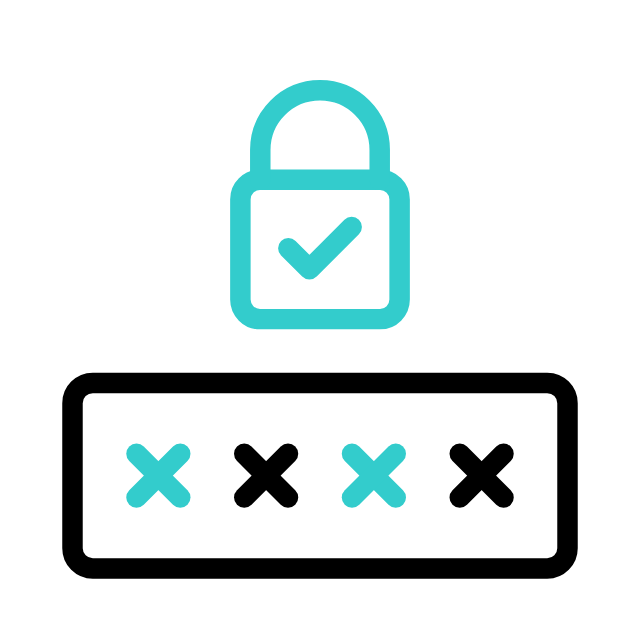Cybersecurity involves defending against future cyberattacks and recovering data and computer systems. When it comes to online safety, businesses must be attentive and proactive because cyberattacks can have serious repercussions, including damage to their reputation, loss of company data, and monetary penalties.
Understanding Cyber Security Risks

Organizations must take proactive steps to defend their networks as cyber threats become more advanced. Having strong security and networking measures in place can make all the difference in defending your organization from malicious actors trying to obtain access or disrupt your operations in light of the proliferation of data breaches and advanced hacking techniques.
Critical corporate operations and assets are at risk from breaches in digital vulnerabilities. It should be your first priority to establish a network security policy that protects both networks and people within your firm. This calls for careful thought and prompt application of your organization’s best practices for Internet security risks. Protecting information and resources that are available over your network requires you to complete this implementation process.
Essential Internet Security Protocols

Data protection is a characteristic that Internet security offers, since we transfer data in large quantities today, making its security crucial. There are numerous sorts of protocols, including those for mail transfer, routing, and distant communication. However, the Internet security protocol contributes to the confidentiality and integrity of data transmitted over the Internet. Secure Socket Layer (SSL) and Transport Layer Security (TLS) are just two of the protocols that are available to aid with the security of data transmitted over the internet.
Let’s now examine the various Internet Security Protocols:
- Encryption: Data encryption is a crucial procedure for maintaining the security of business networks. Plain text is changed during encryption into cipher-text, which cannot be decrypted without a decryption key. Through this procedure, sensitive data is shielded from hackers, cybercriminals, and other nefarious people who could try to access it without authorization. Organizations may make sure that their sensitive data remains private even if it gets into the wrong hands by encrypting it.
- Using a firewall is one of the primary lines of protection against a cyber-attack. The Federal Communications Commission (FCC) advises all SMBs to use firewalls as a defense against fraudsters accessing their data. Many businesses are beginning to implement internal firewalls in addition to the typical exterior firewall to give additional security.
- Document your cybersecurity policies. When it comes to cybersecurity, relying on rumor and gut feeling is a bad idea. To make it simpler to deliver online training, checklists, and information-specific knowledge transfer to your employees and stakeholders, thoroughly document your cybersecurity best practices, policies, and protocols
- Use multi-factor authentication. One of the most sophisticated and tested methods of data protection is multi-factor authentication (MFA). MFA functions by introducing an additional security measure before account authentication.
Make sure your training covers your company’s general security standards, such as document shredding procedures, in addition to teaching staff about cybersecurity best practices.
Best Practices For Digital Security

Organizations must take proactive steps to defend their networks as cybersecurity threats become more advanced. There is no doubt about it: A company’s prosperity depends on its cyber security. Having strong security and networking measures in place can make all the difference in defending your organization from malicious actors trying to obtain access or disrupt your operations in light of the proliferation of security breaches and advanced hacking techniques.
Let’s identify Internet security best practices, for keeping your network secure.
Any firm that wishes to secure data security and maintain a reliable network must implement a robust password policy. Strong password restrictions are more important than ever since hackers are growing more clever in their operations.
- A strict policy on passwords can help:
- Keep unauthorized people from accessing important data
- Defend yourself from identity theft, and
- Ensure the security of the company’s system.
- Secure your wireless network: Data protection
Wireless networks are widely used by businesses to connect their personnel and access crucial data. Even though these networks are useful, they are also susceptible to online dangers. For the safety and security of your company’s network, it is essential to secure your wireless network.
- Keep software up to date
Patches for security flaws are frequently included in software updates, which hackers can use to launch attacks, steal sensitive data, or gain unauthorized access to computer networks.
Organizations stay ahead of potential hazards by updating their software as soon as it is released. This guarantees that their computer networks and systems are secure against known vulnerabilities.
- Implement access control
Access restrictions prevent unauthorized users from accessing data and resources on a network. There are many ways to establish access controls, including firewalls, passwords, and encryption. A company can efficiently manage access and regulate the movement of data, resources, and information within its network by putting in place dependable access controls. As a result, cybersecurity measures in data and cloud security are improved.
- Employee training
Train your employees. Inform each employee of your company’s cybersecurity policy and best practices. Maintaining their knowledge of new rules and regulations that the world is adopting requires constant training. Show them instances of actual security lapses and solicit their opinions on your present security setup.
Securing Your Business For the Future

What is the importance of internet security for business? Cybersecurity involves defending against future cyberattacks and recovering data and computer systems. When it comes to online safety, businesses must be attentive and proactive because cyberattacks can have serious repercussions, including damage to their reputation, long-term readiness, loss of company data, and financial expenditures.
A strong infosec cyber defense strategies the likelihood that information technology systems will be attacked implements security measures to prevent unauthorized access to sensitive data, and guards against service disruption brought on by cyberattacks. Additionally, it keeps you compatible with the most recent rules and laws in your nation or region.
Because most organizations’ daily operations depend on technology and the internet, cyber security is an emerging technology for maintaining business operations.
